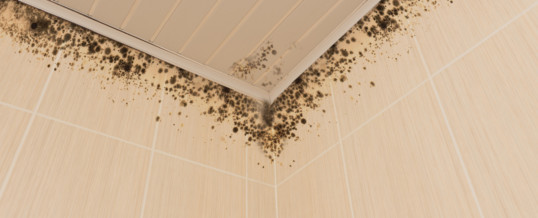
When water leaks into your home from the outside or leaking pipes, it’s always worrisome. Every time it rains, you may be rushing down to your basement to assess the damage. When water is left too long inside of a wall or near the source of a leak, dangerous mold can begin to grow.
Mold can cause serious health issues if left untreated. Is all mold toxic? Is mildew dangerous? We’ve rounded up the answers to all of your mold questions. This guide has everything you need to know about the potential health effects of mold.
1. Asthma
Mold and mildew are types of fungus. There can be several different forms of both that occur in nature and, unfortunately, inside of a home. When mold spores get into the air, these can harm your airways.
If you have asthma or allergies, the seeds, also known as spores, can flare up at an asthma attack if it’s left untreated. If you suspect you have water in your basement for example, behind walls, or near windows, you’ll want to get this taken care of by a professional to help save your home and stop your asthma symptoms.
If your young child has recently experienced the onset of asthma, your pediatrician may ask you about water in your home, mold, or air-quality issues. These can often trigger asthma that could be avoided.
2. Throat Irritation
When the source of the mold is constantly being disturbed, the spores fly through the air, ductwork, or behind the walls. This can happen all the time in places such as basements, bathrooms, and anywhere condensation and humidity can happen.
When mold spores get into the air, they will also get into your airways and throat. Too much exposure to mold can cause throat irritation. You may experience a chronic sore throat, which can lead to more serious health issues.
3. Nasal Congestion and Allergies
When there is mold in your home, nasal congestion is one of the most common health problems experienced. Mold spores can come into your nasal passages and cause painful congestion.
Mold can also trigger allergies if left untreated. You could experience constant sneezing, a runny nose, and painful allergic reactions if mold is left to grow. Even your pets can also have severe allergic reactions to mold. Dogs in particular use their nose so often that mold spores can be damaging when they are constantly inhaled.
4. Coughing or Wheezing
Your body has a natural reaction to cough when something foreign enters your airways. If you suffer from allergies or asthma due to mold, you may have a chronic cough or wheeze.
Mold in your throat, lungs, and air passages are upsetting to your system. Constant coughing can disrupt your sleep and your quality of life. If you’ve recently suspected water in your basement, mold could be to blame for trouble breathing.
5. Irritated Eyes
Mold spores can get into any opening on the human body. Just as you can breathe it in, you can also get mold spores near your eyes. When mold is in the air, your eyes may become irritated, red, or watery.
Eye irritation can also come with a mold allergy or congestion symptoms from mold. It may feel like you have a chronic bad cold.
6. Skin Problems
Because the skin is porous, it’s just as affected by what goes in your body as what you put on the outside. Mold and mildew in your home can seep into your skin if left untreated.
For people suffering from a mold allergy, one of the side effects is often skin irritation. Where you’re being exposed to mold spores, you may see a rash, redness, or other allergic reaction.
You could also see a skin rash from mildew or from touching mold spored you can’t even see. In a basement bathroom, for example, mold spores you be on your sponge, tile, or fixtures.
7. Severe Symptoms in Babies and Young Children
Babies and young children are especially susceptible to mold. Their tiny lungs and air passages can be severely affected by mold spores. Even more so than adults, mold can trigger allergy symptoms and you may not even realize it.
If your child started suffering from allergies shortly after water entered your basement or condensation started occurring in walls, near windows, or your HVAC system, mold could be the reason.
Toddlers put everything into their mouths. If mold grows on surfaces where a young baby or toddler can reach, ingesting mold can also be a problem. Mold spores can even fly onto toys or high-trafficked surfaces.
8. Serious Long-Term Effects
Dangerous molds can also cause more serious effects. If left untreated, toxic mold can enter your walls, your ventilation system, and even contaminate your water. If you’re young, elderly, or immune-compromised, the effects of mold can be even more dangerous.
Long term mold exposure has been linked to cancer, memory loss, insomnia, anxiety, and depression. If you suspect a large mold problem behind your walls or in your home, don’t wait to fix it and most importantly find the source of the water.
Don’t Let Mold Cause Your Family Health Issues
Health issues from mold should never be taken lightly. For those with compromised immune systems, older adults, and families with small children, mold can be even more dangerous.
The most important thing you can do if you suspect water damage, hidden leaks, or mold is to have a professional inspect your home and basement for the source of the water. Once you have the mold removed, you need to waterproof your basement to make sure water doesn’t come back. If you’re ready to get your Baltimore area basement secured, fill out the contact form here to get started.
ShareSEP
